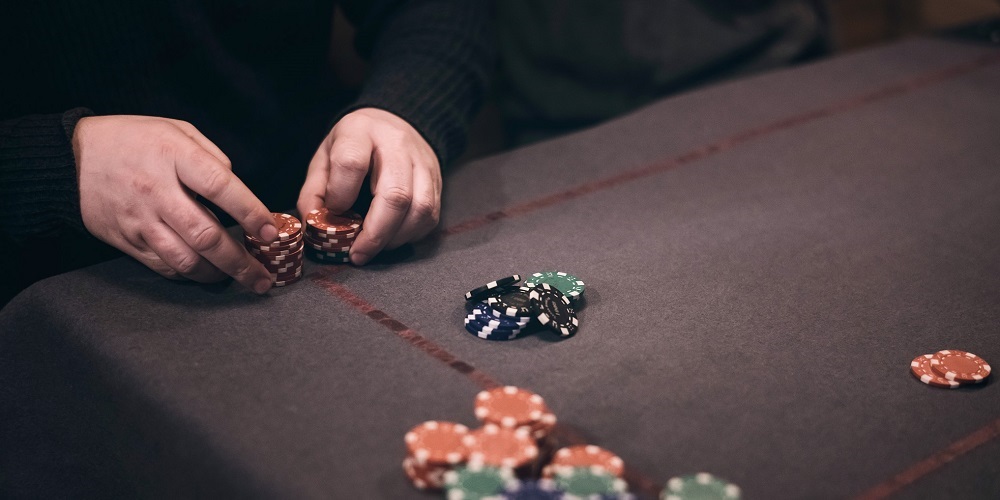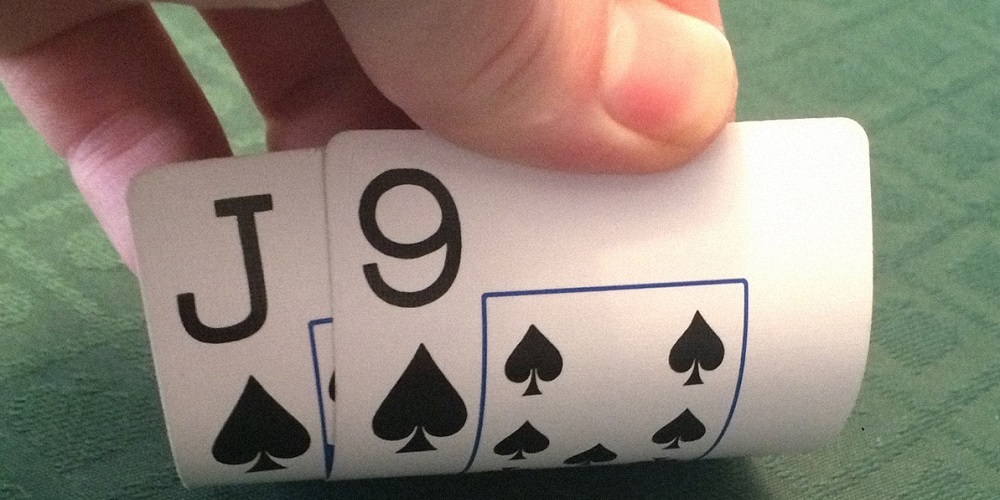

What is a Poker Bluff: meaning, tips and ways to bluff your opponents

Talking about bluff in poker is nothing more than talking about bluffing and this is something that is well known to everyone, we can even find the expression "poker face" that refers to it. In this article we are going to detail everything you need to know about the bluff or bluff (poker). We explain what a poker bluff is or what bluff means in poker and give you some super useful expert tips for bluffing in a poker game. Let's get to it!
What does bluff in poker mean?
When we talk about bluff, meaning and poker we are referring to the popular term "poker bluff" or "bluffing". This concept (and key piece in the strategy of many players) means that you make a bet (a raise) with a relatively weak hand. Bluffing, on the other hand, can take several forms: total when the cards in your hand are useless; or semi if you have any chance of completing a project with cards that have not yet come out. The player takes the risk knowing that he can lose it in the event that another of the opponents sees it or calls it, although it is true that it is also possible that his bluff turns out well, especially if we take into account that, sometimes, in poker, it is convenient to take a risk and turn an average hand with value into a bluff with the purpose that your opponent throws a better hand than yours and thus reverse the situation and win it for you.
The bluff, then, has the ultimate goal of "cheating" the opponent so that he throws a better hand than ours and, thus, increase the winnings. It can occur at any moment of the game, this strategy will be a success only if the opponent folds. Now, if we focus on the term as such (bluff meaning), a real poker bluff could only be performed when we are on the river, since in the rest of situations our hand can improve depending on the cards that are still to come (technically it would be a semi-bluff, because there are still cards to be discovered, as we have explained above).
Expert tips for bluffing in a poker game

The bluff is a part of the poker strategy that can be of great use in several strategies, not only to get huge amounts in prizes if you manage to sneak it. These are some of the situations in which it is more convenient (or can be) to carry out a bluff (poker bluff).
- To steal the blinds: Pre-flop. This way you will have the possibility to steal the blinds, but also to steal them back from other players who have already raised.
- To steal a pot when a player has raised preflop: This is especially done when you are in the blinds, especially from the big blind and is done against opponents who you know that, in the position they have raised, play a very high percentage of hands. You know that he has a lot of weak or average hands raising and you take advantage of this by making a re-raise with hands that are not very strong.
- To steal a pot that has been folded pre-flop: To limp in means that an opponent only called the value of the big blind when it was his turn, instead of raising. This usually, and especially at low levels, is a symptom of weakness on the part of a recreational player; this type of player usually plays a very high percentage of hands during the game, wants action and play as many hands as possible, therefore, when a recreational player makes a clean the probability that he has a weak hand is high. For this reason, and especially from the big blind, if you get a pot that a recreational player limits, you can afford to raise the bet with a mediocre hand to try to steal the pot.
- Depending on the stakes: It is more common to bluff when we are playing high stakes because the amount is higher, but keep in mind that it also increases the chances of being discovered.
- When the number of players is low: It is best to bluff when there are few opponents, it is suicide to bluff when competing against 4 or 5 players with nothing (or a very weak hand). At most, against two opponents.
- If you have a good bankroll: If you have little margin for error this will generate more pressure that can affect your game, therefore, if you do not feel comfortable at the time of bluffing with a short bankroll, it is best to play at a lower betting level or to increase your bankroll. It is not the same to play with an aggressive bankroll management of 20 buy-ins, than with one of 100 buy-ins.
Of course there are situations in which it is not advisable to bluff. And in some poker modalities and variants it would be the same as jumping headfirst into a pool without water. Nobody bluffs in poker, nobody, when playing a Limit or Soft Limit variant -unless, of course, you are very sure of your opponents' cards-. In these poker modalities, regardless of the variant being played, the strategy is usually softer, mostly because the users try to select better where to put the chips and risk only when they have a winning hand or with many possibilities. The same happens with continuation bets. These are the ones that are made after a previous pre-flop raise, in 80% - 90% of the cases it is a bluff, it is almost textbook!
In any case, we recommend that you take into account the following aspects, first of all:
- Understand what the dynamics of your table are.
- Adapt yourself to the dynamics of the game.
- Find out what image they have of you.
- Analyze your opponents.
- In live poker it is also necessary to learn to read the tells or unconscious mistakes that give you information about your opponents.
What to avoid when bluffing
Starting to bluff is like telling a story about yourself to your opponents. Obviously, to be credible it must have continuity, and you must develop a solid poker face (this is a must that everyone should know when answering what is a poker bluff). And, regarding the latter, it is important that you keep in mind the following (always keeping in mind that some of these tips are for live poker, where opponents can see and analyze your gestures):
- Avoid showing emotions and having the outcome of an individual hand affect your play (you can try covering yourself with a cap, sunglasses or a scarf).
- Avoid giving information about yourself with tells throughout the game.
- Don't do it if you are not sure.
- Don't bluff if you can't bear the loss in case someone sees it.
- Don't do it just because you haven't done it throughout the game to see what happens. Remember that you are risking your money.
- Don't do it if you think your opponent won't give up.
Do professional players bluff?

Generally speaking, the more professional or expert they are, the less bluffing they tend to do. Keep in mind that this strategy is very risky and in the case of poker stars there is a lot of money at stake on the table, which is why they tend to focus on carrying out their solid strategy built up over the years to unseat their opponent. This does not mean that they do not do it, of course we can find several cases -such as the famous Canadian Brad Booth's table that managed to sneak one of the biggest bluffs ever seen on television to the poker star Phil Ivey-. However, the degree of use of the bluff by professional players will depend on the type of opponent they are facing, as well as the strategy they are following in the game. Poker has evolved to a great extent, so nowadays professional players have statistical data on their opponents, data that allows them to know the number of times an opponent has risked a bet on the river or a continuation raise, for example. This implies that, if the strategy of the professional is to take advantage of the weaknesses or weak points of the opponents, he tends to try to steal pots often. But, on the other hand, if his game strategy is to play as GTO as possible (according to the Game Theory Optimal), then he will tend to balance the range of bluffs against other professional players.
You may also like

TAG players: what are they and how do they play?
Poker players are usually classified according to their level of aggressiveness. This allows us to anticipate their strategies and counteract them, but it is impossible to know what kind of game th...

GTO Strategy in Poker: How to Apply It to Your Game
GTO Strategy in Poker: How to Apply It to Your GamePoker is a game of incomplete information, where every decision can drastically affect the outcome of a session. Among the various strategies used...

Suited connectors in Texas Hold'em: what are these cards?
The suited connectors in poker are an important element of any potentially winning strategy. They are those connected cards of the same suit, (i.e. consecutive (e.g. J, Q or 9, 10) of the same suit...













